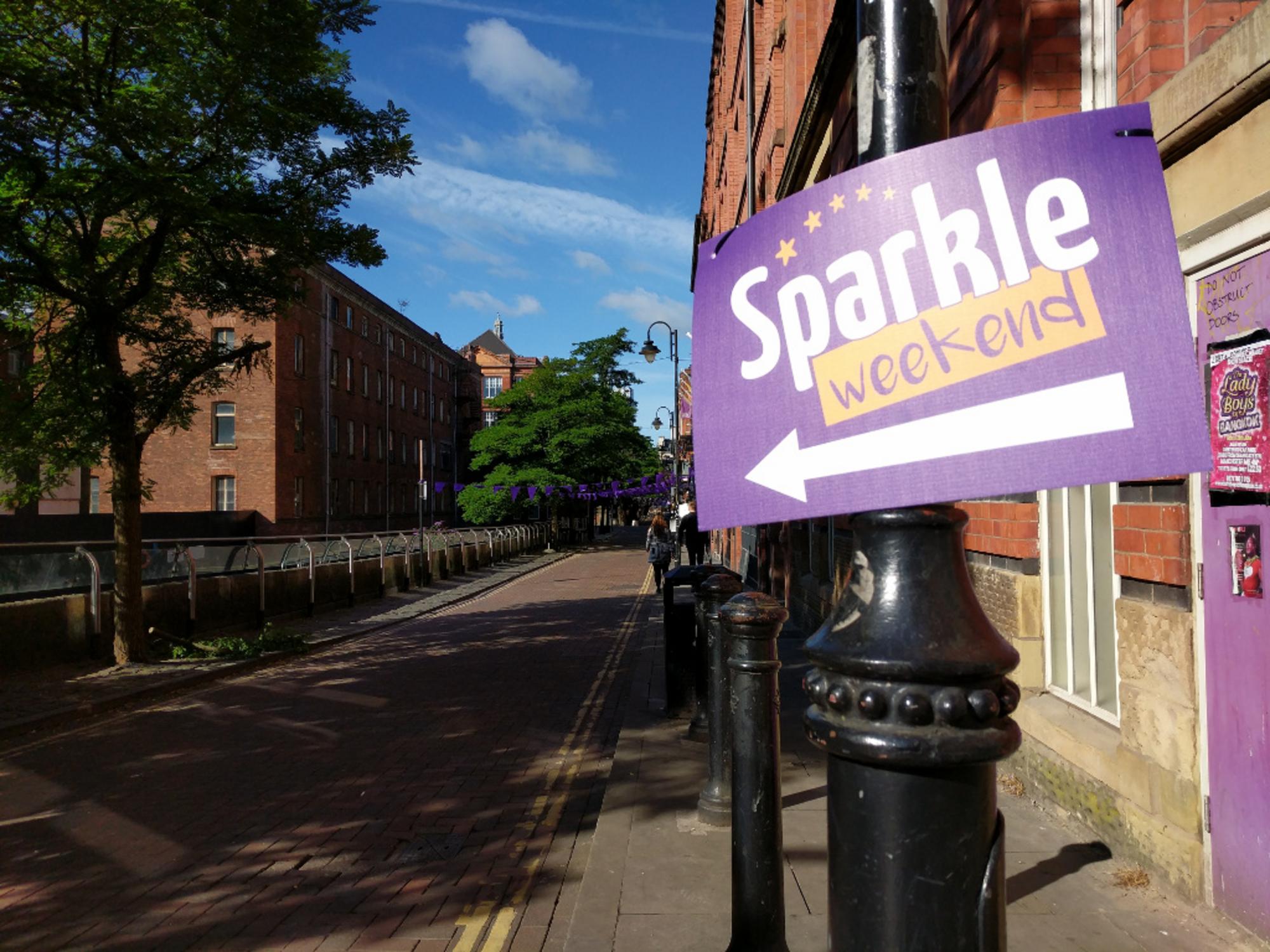As I write this I'm here in Manchester for Sparkle Weekend, 2017. It's only the second time I've been – I came last year too – and while it's not quite the ideal event for me personally, I have nevertheless returned. Why?
It's obvious to anyone who's been here, that although it bills itself as “the world's largest trans celebration”, the event itself is aimed far more at the part-time / cross-dressing end of the transgender spectrum than at people like me. And although I'm not a fan of the label “transsexual”, it's definitely at times like these when it feels like it might be useful to have labels to help us talk about these things – about the different ways of being trans, all of which are OK. Because being trans, or non-binary, is just who we are. We all experience some kind of mismatch or dissatisfaction with our assigned gender, but how we react to that and deal with those feelings varies from person to person.
We could use language as terse as “some of us transition, some don't” – but even then, that's treating “transition” as a yes/no option, as if it's a single thing, which we know that it isn't. So let's be more specific.
How we deal with our gender identity (or, to put it more simply, our gender) – varies along many axes. What, if anything, do we tell our partners, our friends, our families, our colleagues? How do we present ourselves to the world, in our clothing, our hair, our skin, our voices, our speech, our mannerisms, our actions? What do we ask people to call us – our names, our pronouns? Do these things vary depending on context, or day of the week, or how we feel? Then, there's the things which, while they can be changed, can't be switched into and out of at will (if that's your thing): hair removal, body mass, hormones, or various forms of surgery.
It's easy – and potentially even useful – to label people as “part time” or “full time” or “transitioning” or “transitioned”, but that greatly contracts and simplifies a complex picture which we would do well to recognise as actually containing far more nuance, complexity and detail.
So, I'm here at Sparkle not just to hang out on the edges of the event, to meet up with friends, and generally have fun, but also for another reason. Because after all of the changes that I've achieved with my transition – which I now regard as effectively “complete” – I recognise where I was, where I came from, what I've been through. Although I didn't come to Sparkle until I'd already changed a great many things about myself, I look around, and I still see in those around me an essence of how I used to be.
This lunchtime, Lisa Severn and I will be holding one of the workshop events here, because we hope to be able to give back, to help some of the people here deal with their own gender: to deal with “transition”, whatever that entails for them. We're not experts – we'll simply be telling our stories, and hoping to facilitate discussion with any who attend. With luck, those of us who have already been down a path, can make the way easier for any who choose to follow.
